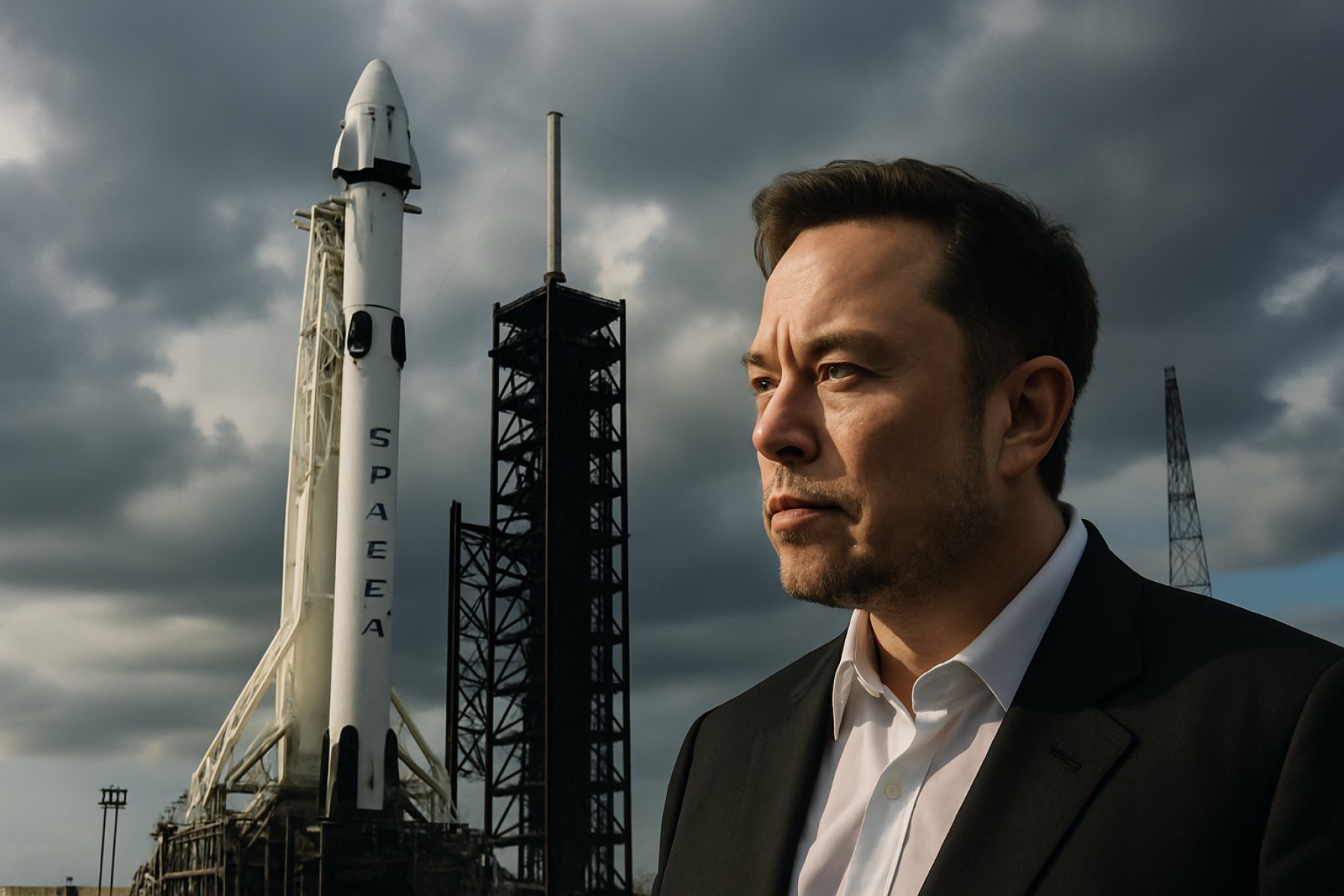How the Trump-Musk Feud Over SpaceX and Starlink Could Trigger Unprecedented Government Action
Elon Musk’s standoff with Donald Trump threatens U.S. space dominance and puts the future of Starlink and SpaceX at center stage in 2025.
- SpaceX: 90% of U.S. orbital payload launched in Q4 2023
- Starlink: Controls about 65% of active satellites in space
- Government Funding: $22B+ in direct Federal support since inception
- Potential Impact: ISS access and U.S. secure communications at risk
America’s space ambitions have hit a dramatic snag. As 2025 dawns, the public spat between former President Donald Trump and tech mogul Elon Musk threatens to unravel critical U.S. assets in space. It’s a contest of titans—with rockets, broadband, and billions in federal contracts on the line.
What began as a flurry of bitter social media insults exploded into a real policy standoff. Trump hinted at stripping Musk’s SpaceX of its government lifeblood—lucrative contracts to launch satellites and ferry astronauts to the International Space Station. Musk, in turn, brandished his cosmic clout, suggesting he could endanger national interests with a mere flick of his influence.
Q: Why Does This Feud Matter to National Security?
SpaceX quite literally keeps America in orbit. With unrivaled launch power—it carried nearly all new U.S. payloads to space last year—it’s the nation’s only steady ride to the ISS. Starlink, SpaceX’s satellite internet arm, extends U.S. reach not just to rural America, but to strategic zones worldwide. Even the Ukraine war has played out over Starlink’s digital backbone, with Musk’s decisions determining battlefield connectivity.
Now that Musk and Trump have locked horns, even jokes about grounding rockets or shutting down nodes send shockwaves through Washington. The mere suggestion that SpaceX’s lifeline could be cut—by Musk or by government—has forced both parties to imagine the real, chilling consequences.
Q: Could the Government Actually Take Over SpaceX?
With pressure mounting, some advisors close to Trump propose invoking the Defense Production Act. This rarely used legal lever lets the government commandeer critical industries for national security. If there were ever a convincing case, SpaceX—a de facto monopoly with decades of federal backing—may fit the bill.
The argument is simple: No single billionaire should control America’s launch pads, global broadband backbones, or the keys to its orbital future. Rivals like Boeing and Blue Origin are barely competitive, stymied by what industry leaders call classic monopolist moves: undercut pricing, contract clauses favoring SpaceX, and regulatory chokeholds.
How Did SpaceX Get So Powerful?
Over two decades, SpaceX won the space race with reusable rockets and relentless innovation. But its dominance isn’t all due to engineering. Critics allege predatory pricing, exclusive contract provisions, and even moves to frustrate funding for smaller competitors like Relativity Space, Phantom Space, and Rocket Lab.
The meteoric expansion of Starlink—now providing internet in dozens of conflict zones and remote frontiers—has amplified SpaceX’s sway over military and humanitarian operations alike. It’s no surprise that international trade agencies, broadband subsidies, and even the State Department have bent over backward to help Musk’s empire expand.
What’s Next for America’s Space Policy?
As accusations and threats fly, lawmakers and regulators must reckon with crucial questions: Should one man hold such sweeping power? Is it time to treat launch services and satellite broadband as essential public utilities? And will 2025 bring the long-awaited antitrust crusade against SpaceX’s market tactics?
Federal agencies like the FTC, FCC, and Commerce Department may soon face pressure to probe SpaceX’s dealings and pricing. Yet, as political allegiance shifts, even officials who once courted Musk now scramble to rewrite loyalties—or protect their careers. It’s a glimpse into an oligarchic, unpredictable system where public interest often takes a back seat.
How Can the U.S. Regain Control of Its Own Space Destiny?
- Pursue rigorous antitrust review of launch and satellite internet markets
- Consider designating critical infrastructure like Starlink as public utilities
- Demand full transparency for federal funding and SpaceX-related contracts
- Mobilize competition by supporting credible new aerospace players
America’s grip on the stars should never depend on the whims of a single tycoon or a fleeting political alliance. The time to reassert public governance over space—and internet—dominance is now.
2025 Space Policy Checklist:
- Monitor White House and Musk negotiations weekly
- Track new competitive launches and broadband awards
- Watch for FTC or congressional antitrust action against SpaceX
- Support a return to rule of law and accountability in critical infrastructure












